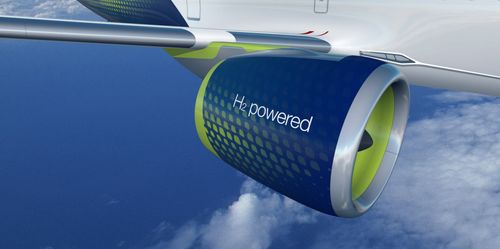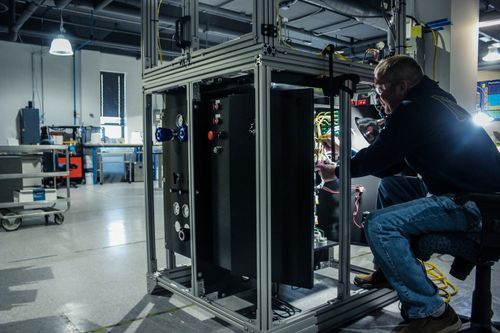Oxylus Energy, developer of a novel carbon utilization technology for the production of e-fuels, has closed its $4.5 million Series Seed investment co-led by Toyota Ventures and Azolla Ventures with participation from Earth Foundry and Connecticut Innovations.
Oxylus’ solution is the first low-temperature and low-pressure conversion of carbon dioxide to green methanol, a liquid fuel. This is enabled by commercializing the first-ever catalyst developed at Yale University by Professor Hailiang Wang for direct electrochemical conversion of carbon dioxide to methanol.
ReSource reported earlier this year that the company was gearing up for a seed round.
The seed capital raise would provide approximately 26 months of runway, Perry Bakas, the company’s CEO, said in the interview. The company would then raise between $20 – $30m in a follow-on Series A in late 2026, he said at the time.
Building reactors similar to green hydrogen electrolyzers, Oxylus creates methanol using only captured carbon dioxide, water and electricity. Designed to operate in modular conditions, this approach is a lower-cost technology for carbon conversion into alternative fuels. This funding will accelerate Oxylus’ technology development, prototype testing and pilot deployment.
Oxylus Energy’s methanol can be used as a drop-in fuel replacement or upgraded to jet fuel and other green petrochemicals. By uniquely combining carbon conversion and alternative fuel production this approach can reduce energy expenditures and cut costs for fuel production. “Direct electrochemical conversion of carbon dioxide at low temperatures and pressures is the only way to decrease the cost of green methanol,” said Conor Rooney, Co-Founder and CTO of Oxylus. According to Harrison Meyer, Co-Founder and COO of Oxylus, “Without decreasing the price of methanol it will be difficult to decarbonize the hard-to-abate sectors of aviation, shipping, and petrochemicals that are currently responsible for 11% of global emissions.”









